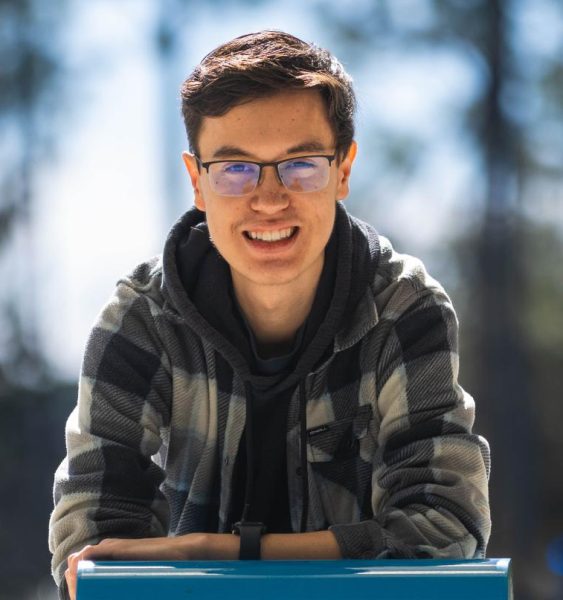“Stranger danger” is a two-word phrase often associated with keeping someone safe from potential predators and is often instilled in children as early as grade school.
Widespread or not, its message may not be entirely accurate. Ninety-three percent of children and teen sexual assault victims actually know their assaulter, in cases reported to law enforcement, according to the Rape, Abuse & Incest National Network. The remaining 7% are strangers.
That statistic rang true for Gina Caserta, a 24-year-old current University of North Florida graduate student, who was assaulted by a close friend of nine years during her sophomore year at another university.
Writing with an over-the-shoulder perspective in her recently published memoir, “In Fifty Pages or More,” Caserta makes a bid to continue the conversation about college sexual assault. The graduate student delves into moving forward after the assault, discussing resources she never realized were available and more.
“Sharing my story, I hope it helps others with understanding theirs,” she said. “Or at least knowing that hey, there’s other people that have experienced something similar to you out there, and you’re not alone in what you suffer, and it’s okay, take your time.”

The Red Zone—a time of heightened sexual assaults on college campuses—technically ends around Thanksgiving. However, that doesn’t mean sexual assaults cease until the next year. Assaults happen year-round, and to Caserta, keeping that conversation alive is important.
An It’s On Us study, released in September 2023, revealed that just 45% of college men receive sexual assault prevention training, the 19th first reported. It’s On Us was founded in 2014 as an initiative by the Obama-Biden administration and is now America’s largest nonprofit program dedicated to college sexual assault prevention, according to their website.
Looking back on her undergraduate career, Caserta said she wished she had someone to relate to when learning about sexual assault.
Media often depicts the worst of the worst with sexual assault, but that doesn’t make the issue black and white, she said. Oftentimes, self-identifying a sexual assault can be much more difficult when it doesn’t exactly align with what’s depicted online. By sharing her story, she may be able to help other victims identify and move forward after their own assaults.
“I think it’s not only cathartic for people to realize that they’re not alone, but I think [talking about the assault] allows them to kind of relax a little bit within their own skin,” Caserta said.
Her memoir was inspired by a law firm’s scholarship prompt meant specifically for sexual assault survivors.
“Describe how you overcame your sexual assault and are taking back control of your life through the vehicle of education, in 500 words or less,” it prompted. But there was fine print.
Once the application was submitted, according to Caserta, it would be the intellectual property of the unnamed law firm regardless of whether she won the prize money or not.
“They’re able to make money, and they’re taking it from people who are asking for money,” she said. “It just did not sit right with me. And I just became so enraged to the point where I just started typing away and just literally going on about what actually had happened to me.”
And so Caserta’s memoir was born.
To learn more about Gina Caserta’s story and “In Fifty Pages or More,” visit here.
___
For more information or news tips, or if you see an error in this story or have any compliments or concerns, contact editor@unfspinnaker.com.








